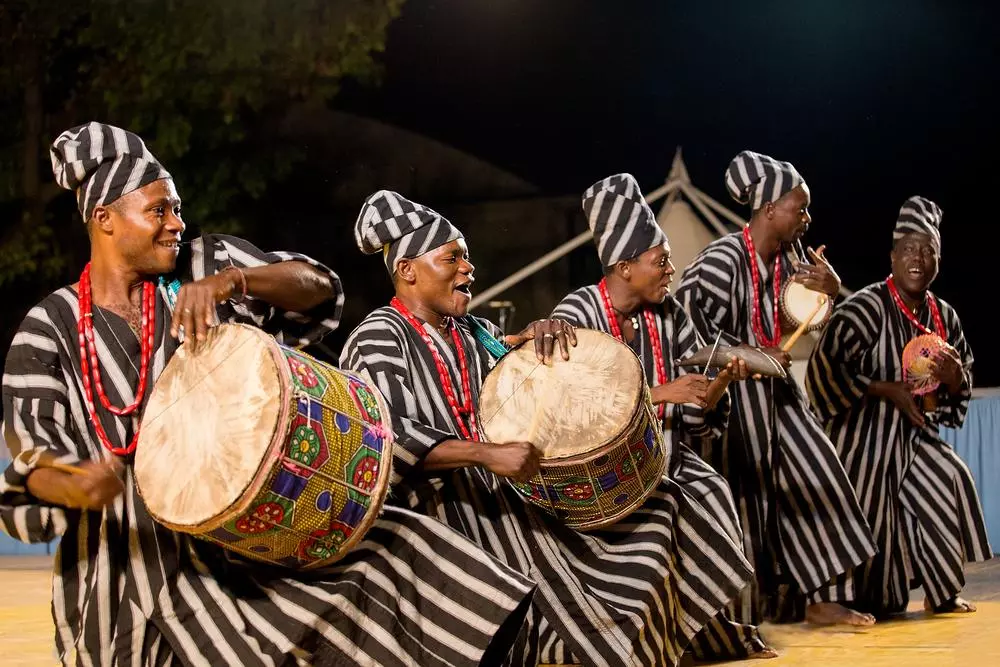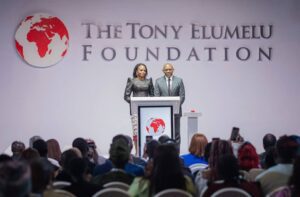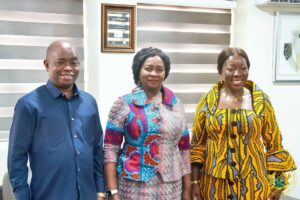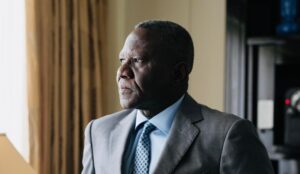
Source: Ghanaija
In the vibrant city of Lagos, Nigeria, lived a young musician named Amina. She was known for her deep love and understanding of traditional Nigerian music, which she inherited from her grandfather, Baba Tunde. Baba Tunde was a renowned griot, a custodian of oral history, and a master of the talking drum. His stories and songs were not just melodies but the threads that wove the cultural fabric of their community.
Amina spent countless hours learning from her grandfather, mastering the rhythms and tales that had been passed down through generations. She understood that traditional music was more than entertainment; it was the heartbeat of her people, a powerful force that preserved their identity and history.
One day, Amina received an invitation to a cultural festival in Dakar, Senegal. The festival aimed to celebrate and showcase the rich tapestry of African traditional music. Excited by the opportunity to share her heritage, Amina packed her talking drum and set off on her journey.
Upon arriving in Dakar, Amina was greeted by a bustling crowd of musicians and performers from various African regions. There, she met Cheikh, a kora player from Senegal. The kora, a 21-string lute-bridge-harp, was central to the Mandinka culture, and Cheikh was eager to share its significance with Amina.
Cheikh explained how the kora’s music told the stories of his ancestors, celebrated their victories, and mourned their losses. He played a hauntingly beautiful tune, and as the strings resonated, Amina felt a deep connection to the shared heritage of African traditional music.
During the festival, Amina also met Muthoni, a Kikuyu singer from Kenya. Muthoni’s music was deeply rooted in the traditions of the Kikuyu people, and her songs were often used in rituals and ceremonies. She sang with a voice that echoed the mountains of her homeland, telling stories of the earth, the sky, and the spirits that inhabited them.
Muthoni and Amina exchanged stories and songs, discovering the similarities and differences in their musical traditions. They realized that despite the diversity of their backgrounds, their music shared a common purpose: to preserve their cultural identity and pass it on to future generations.
As the festival progressed, Amina performed her grandfather’s songs, playing the talking drum with skill and passion. Her music captivated the audience, who could feel the rich history and emotions embedded in each beat. Through her performance, Amina honored her grandfather and celebrated the resilience and beauty of Nigerian culture.
The festival culminated in a grand concert where all the musicians came together, blending their traditional sounds into a harmonious symphony. The air was filled with the melodies of the kora, the beats of the talking drum, the powerful vocals of Muthoni, and many other instruments and voices. It was a celebration of Africa’s diverse cultures, united by the shared language of music.
After the festival, Amina returned to Lagos with a renewed sense of purpose. She understood more deeply the importance of traditional music in preserving cultural identity. She decided to open a music school dedicated to teaching young Nigerians about their musical heritage. Amina’s school became a haven for children, where they learned to play traditional instruments, sing ancestral songs, and understand the stories behind the music.
Amina also collaborated with musicians she met at the festival. She invited Cheikh and Muthoni to Lagos to conduct workshops, exposing her students to a broader spectrum of African musical traditions. These exchanges enriched her students’ understanding and appreciation of the continent’s cultural diversity.
Through her efforts, Amina witnessed a revival of interest in traditional music among the youth. They embraced their heritage with pride, recognizing the power of their music to connect them with their roots and each other. The music school thrived, becoming a cultural hub that attracted musicians and scholars from all over Africa.
One evening, as Amina played the talking drum under the starlit sky, she reflected on her journey. She realized that traditional music was not just about preserving the past; it was about creating a bridge to the future. It provided a sense of belonging and identity, reminding people of their shared history and values.
Amina’s story spread beyond Lagos, inspiring others to explore and celebrate their own musical heritage. In towns and cities across Africa, similar initiatives sprang up, fostering a renewed appreciation for traditional music and its role in cultural identity.
Years later, Amina’s music school became a renowned institution, producing talented musicians who carried their heritage with pride. Baba Tunde’s legacy lived on through Amina and her students, a testament to the enduring significance of traditional music in shaping and preserving cultural identity.
Through her passion and dedication, Amina demonstrated that traditional music is not a relic of the past but a living, breathing expression of a people’s soul. It is a powerful force that transcends time and space, connecting generations and communities in a harmonious dance of history and identity.








